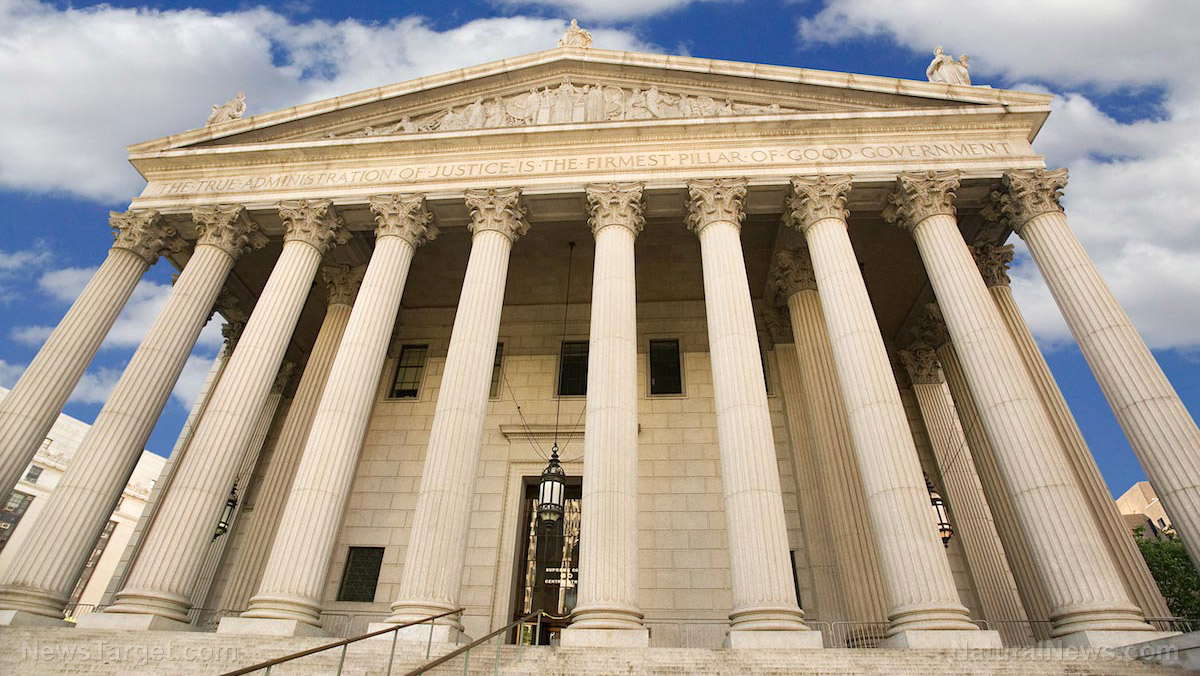
Last week, Attorney General William Barr blasted “nationwide injunctions” that are increasingly issued by the lowest federal courts which block presidential or congressional actions and laws from taking effect for the entire country — a power they were never specifically granted by our founders.
In a speech to the American Law Institute, Barr said that federal judges have issued nearly 40 nationwide injunctions just since POTUS Donald Trump was sworn into office — more than all of the injunctions spanning the entire 20th century, the Washington Examiner reported.
Barr criticized the “improper use of nationwide injunctions against policies of all stripes,” adding that their use to block policies issued by the president gives district courts “unprecedented power.”
“One judge can, in effect, cancel the policy with the stroke of the pen,” Barr said. “No official in the United States government can exercise that kind of nationwide power, with the sole exception of the President. And the Constitution subjects him to nationwide election, among other constitutional checks, as a prerequisite to wielding that power.”
One instance that Barr mentioned involves the Obama-era “Deferred Action for Childhood Arrivals” program, or DACA. President Obama issued the policy as an executive order, even though it actually changed established law — a power presidents are not supposed to have. (Related: WTH? Federal judge believes DACA likely unconstitutional but allows it to go on anyway.)
President Trump has since tried to reverse Obama’s policy with an executive order of his own, but Left-wing open borders groups sued in federal court and managed to get a judge to issue a nationwide injunction barring POTUS Trump’s action from being enforced.
Even though Obama implemented DACA via executive order.
“Since President Trump took office, federal district courts have issued 37 nationwide injunctions against the Executive Branch. That’s more than one a month. By comparison, during President Obama’s first two years, district courts issued two nationwide injunctions against the Executive Branch, both of which were vacated by the Ninth Circuit,” Barr said, adding that in all of the 20th century, federal judges only issued 27 nationwide injunctions.
Our founders designed the Judicial Branch to be a check and balance against the Legislative and Executive Branches. That is, they empowered the federal judiciary with the authority to decide whether laws passed by Congress and edicts, policies, and actions issued by the president were constitutional.
Nationwide injunctions are constitutionally incorrect
But as one noted legal expert says, that authority was not expansive. In fact, Samuel L. Bray, a professor at the UCLA School of Law, argued in a 2017 paper that nationwide injunctions issued by the lowest of federal courts is a relatively new phenomenon, coming into wider practice by so-called “activist” courts only in the latter 20th century.
“Federal district judges have taken to an odd practice: They are issuing injunctions that apply across the nation, controlling the defendant’s behavior with respect to nonparties,” his paper, “Multiple Chancellors: Reforming the National Injunction,” [.pdf] begins.
As noted by the Harvard Law Review, Bray made four principle arguments:
— Nationwide injunctions encourage what has been deemed “judge shopping.” That is, plaintiffs seek out federal judges ‘friendly’ to their political positions and file their cases in those courts.
— National injunctions prevent legal questions from ‘percolating’ up through the federal judiciary, where they would be considered, dissected, and ruled upon by various courts in order to reach a final decision.
— Nationwide injunctions make conflicting decisions almost a certainty by forcing other plaintiffs to other ‘friendly’ courts seeking opposite rulings.
— National injunctions are in conflict with other well-established legal doctrine.
And, of course, there is Barr’s principal contention that plaintiffs use them to stymie Congress or the Executive Branch without having to go through the normal processes of winning elections.
Bray proposed that courts should only grant whatever relief is necessary to protect plaintiffs from the defendant, while in all cases “injunctions should not protect nonparties.”
Barr wants the federal judiciary to get back to issuing rulings that affect only their districts. Let’s hope he’s successful.
Read more about POTUS Trump’s constitutionalist court picks at Gorsuch.news and WhiteHouse.news.
Sources include:
Please contact us for more information.
















